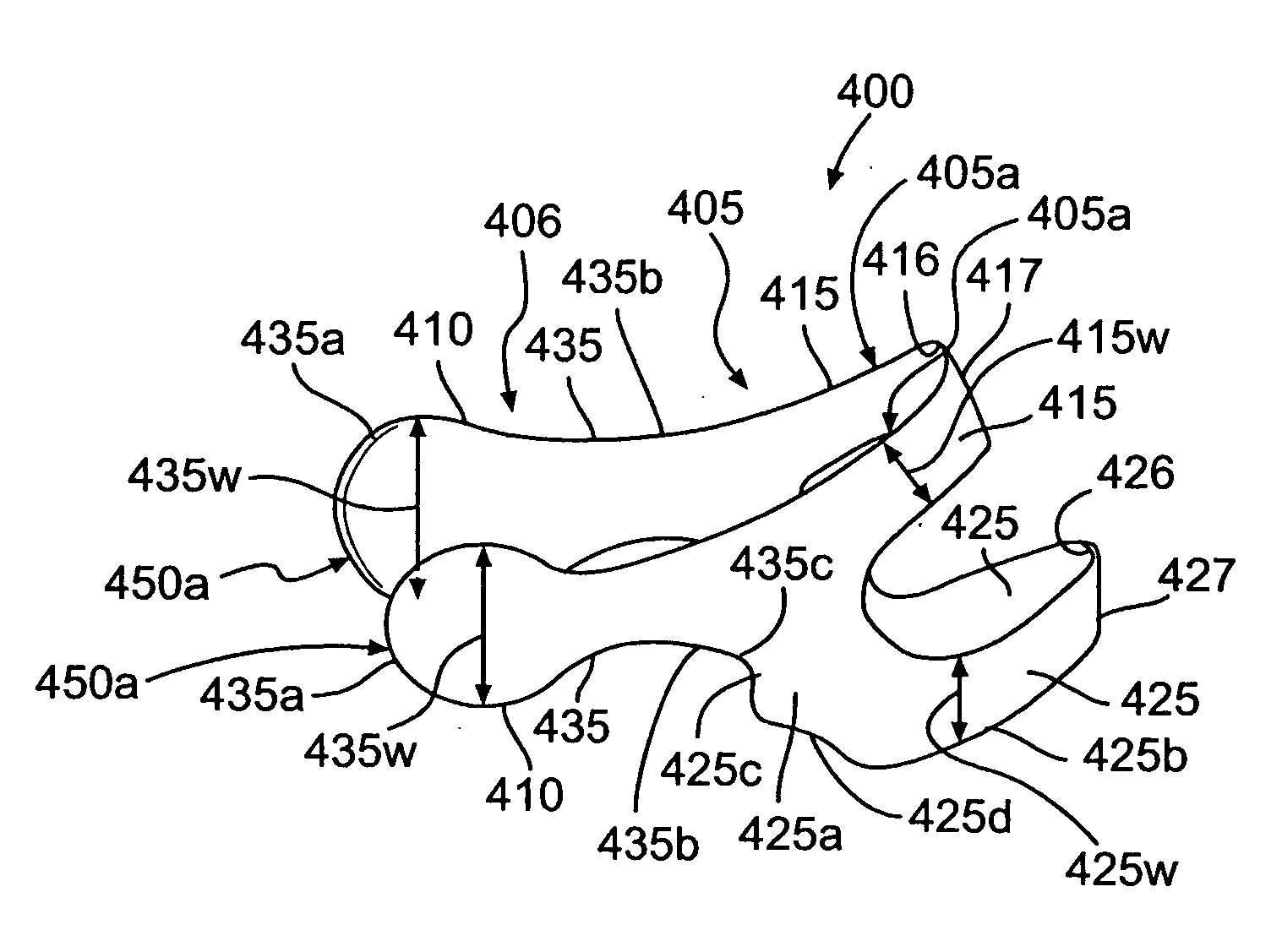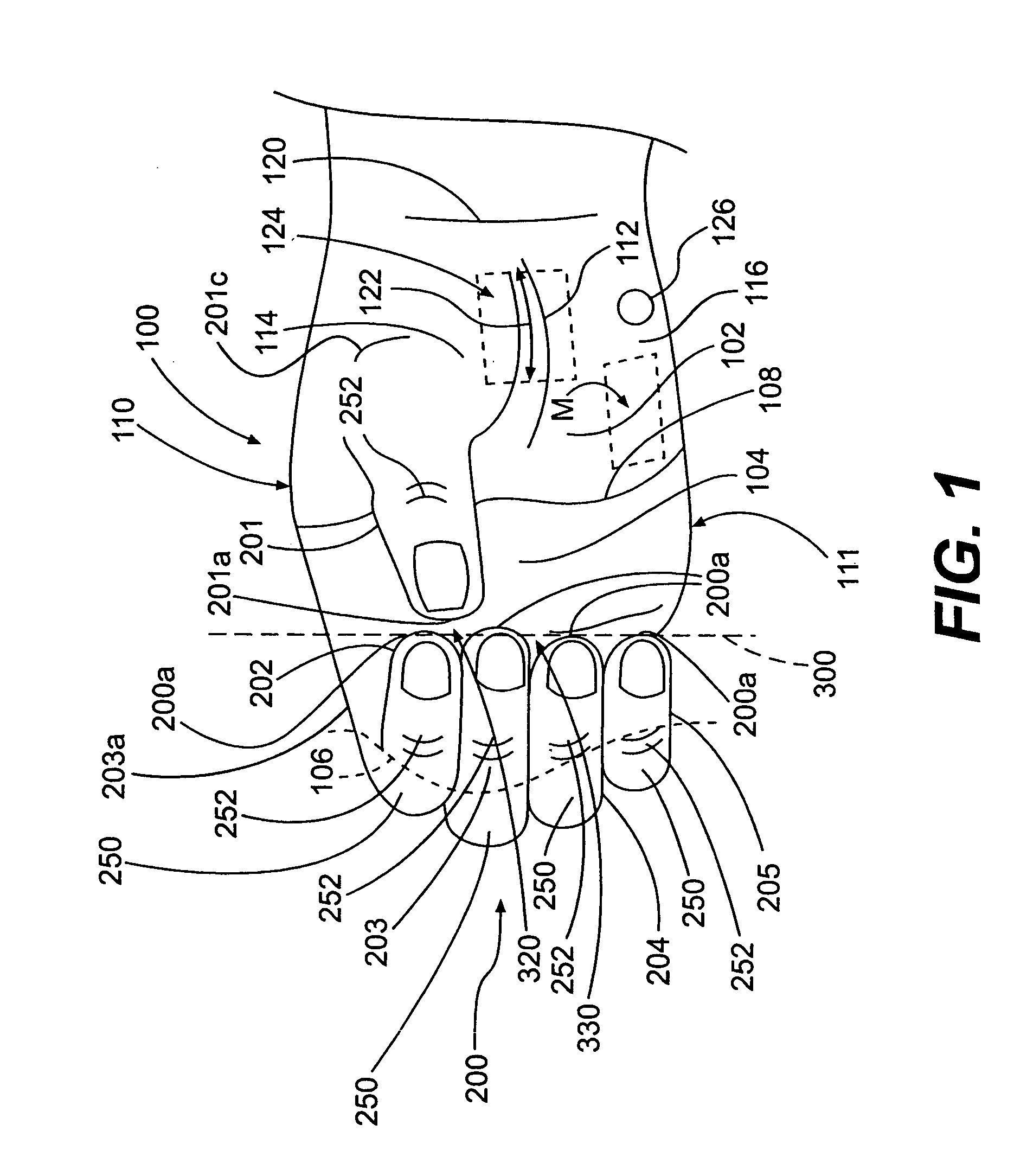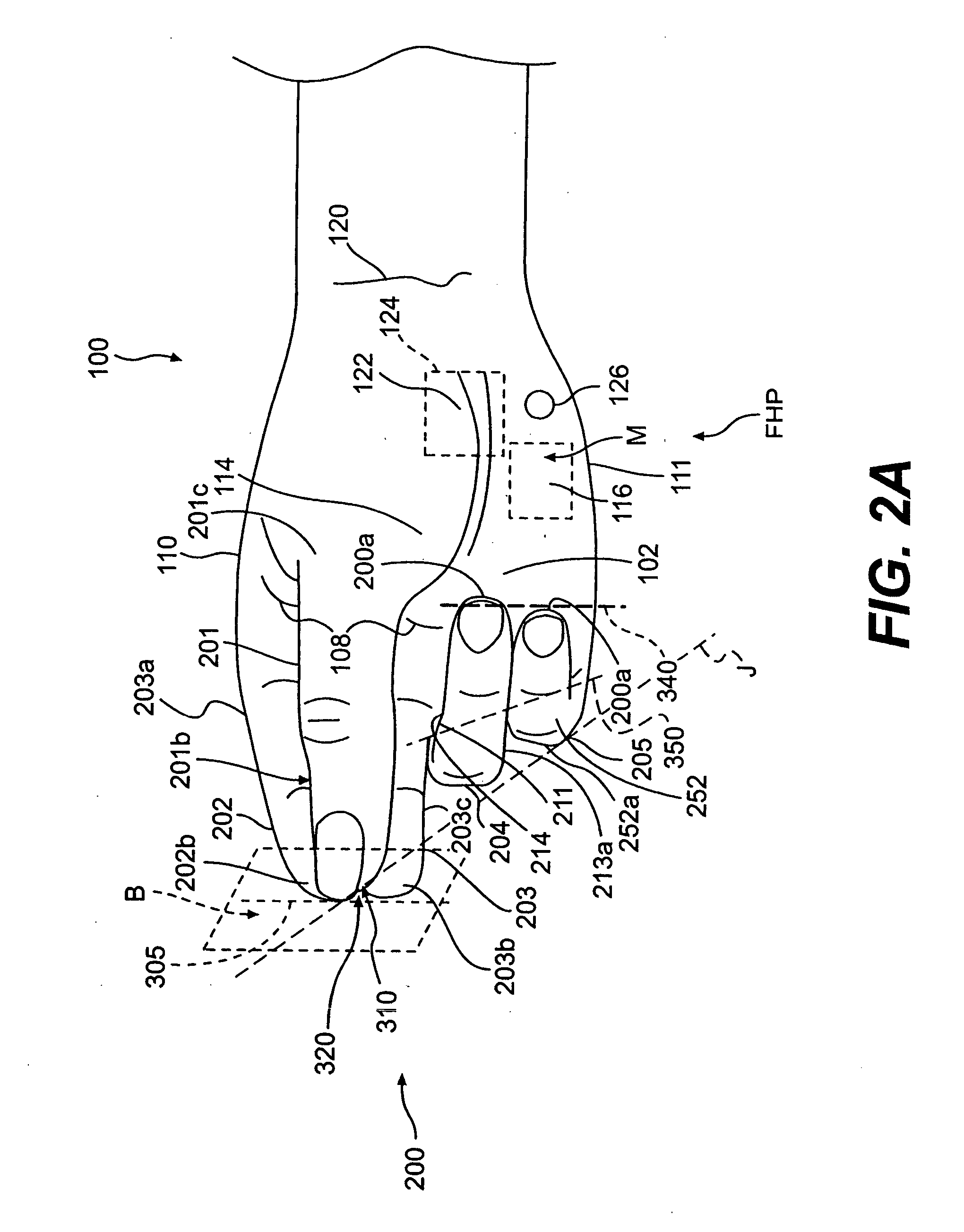Handle for forceps/tweezers and method and apparatus for designing the like
a technology of hand and tweezers, applied in the direction of surgical forceps, mechanical control devices, incision instruments, etc., can solve the problems of hand strain, muscle and joint strain, and the chance of fatigue and strain in these muscles and their fascicles is greater
- Summary
- Abstract
- Description
- Claims
- Application Information
AI Technical Summary
Benefits of technology
Problems solved by technology
Method used
Image
Examples
Embodiment Construction
[0079] In order to more clearly and concisely describe the subject matter of the present invention, the following definition for the T Position is intended to provide guidance as to the meanings of specific terms used in the following written description. In addition, it is to be understood that the phraseology or terminology employed herein is for the purpose of description and not to be construed in a limiting sense. The following discussion relates to areas of the hand in relation to the present invention with reference to FIG. 1.
T Position
[0080]FIG. 1 illustrates the hand 100 to the T Position. The T Position is the position the hand 100 assumes when the tips 200a of the long fingers 200 are aligned and the tip 201a of the thumb 201 opposes the space 320 between the index finger 202 and middle finger 203. In this position the area that crosses the palm 102 of the hand 100 known as the palmar arch 104 is concave. The finger cup 106, shown as a dotted line, is the concave area ...
PUM
 Login to View More
Login to View More Abstract
Description
Claims
Application Information
 Login to View More
Login to View More - R&D
- Intellectual Property
- Life Sciences
- Materials
- Tech Scout
- Unparalleled Data Quality
- Higher Quality Content
- 60% Fewer Hallucinations
Browse by: Latest US Patents, China's latest patents, Technical Efficacy Thesaurus, Application Domain, Technology Topic, Popular Technical Reports.
© 2025 PatSnap. All rights reserved.Legal|Privacy policy|Modern Slavery Act Transparency Statement|Sitemap|About US| Contact US: help@patsnap.com



